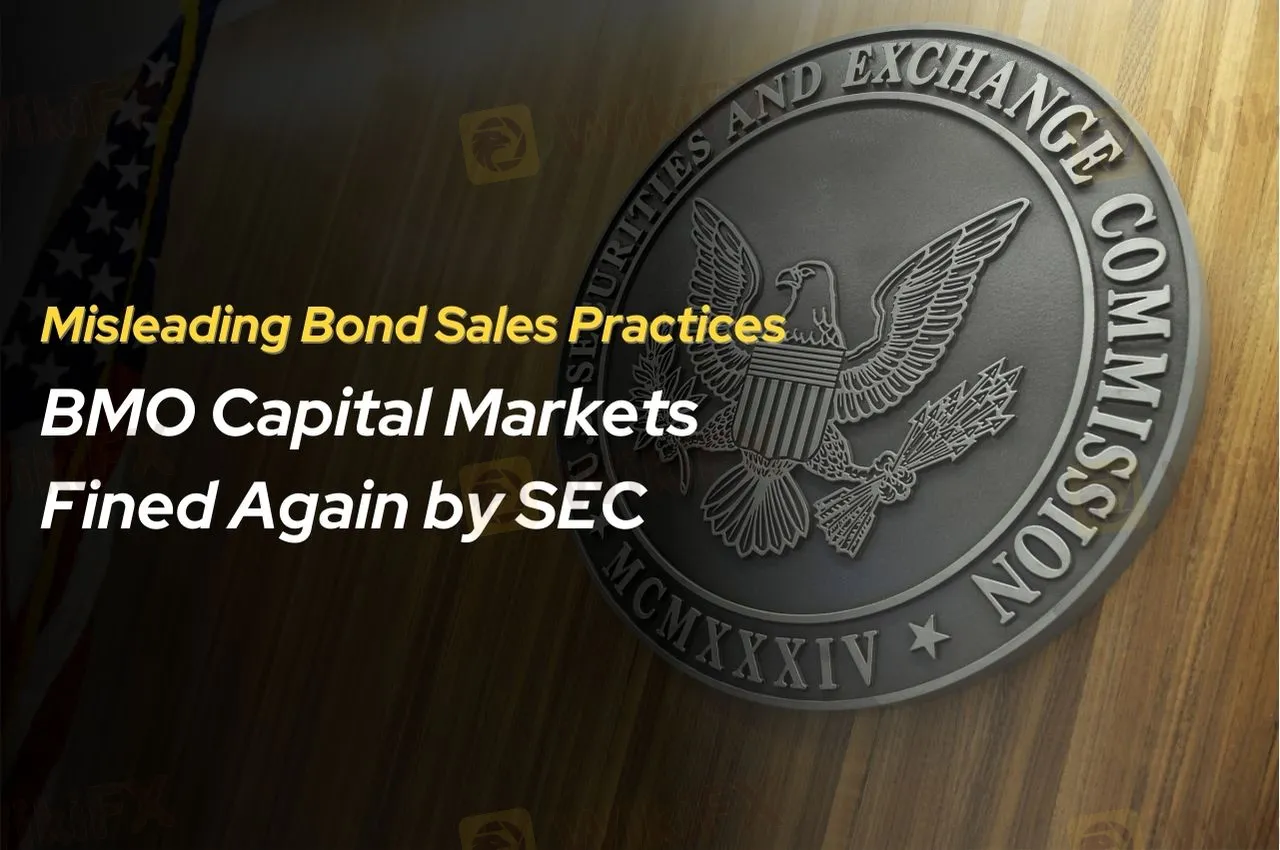简体中文
繁體中文
English
Pусский
日本語
ภาษาไทย
Tiếng Việt
Bahasa Indonesia
Español
हिन्दी
Filippiiniläinen
Français
Deutsch
Português
Türkçe
한국어
العربية
Misleading Bond Sales Practices: BMO Capital Markets Fined Again by SEC
Abstract:BMO Capital Markets faces another SEC penalty, adding to its history of regulatory scrutiny and financial sanctions.

In January 2025, BMO Capital Markets faced a significant penalty from the U.S. Securities and Exchange Commission (SEC) for failing to supervise employees who misrepresented mortgage-backed bonds over a two-and-a-half-year period, from December 2020 to May 2023. According to the SEC‘s findings, BMO representatives structured mixed-collateral bonds backed by residential mortgage pools. A small percentage of higher-interest mortgages was strategically included, causing third-party data providers to generate inaccurate metrics about the bonds’ overall composition. These misleading metrics were then provided to customers.

Despite apparent inaccuracies, BMO failed to establish appropriate supervisory policies or procedures to ensure accurate representations of these bonds. Over this period, $3 billion worth of these so-called “Agency CMO Bonds” were sold under misleading conditions. This behavior was found to violate Section 15(b)(4)(E) of the Securities Exchange Act of 1934, which mandates the reasonable supervision of registered representatives. As part of the settlement, BMO agreed to pay over $40 million, including disgorgement, prejudgment interest, and civil penalties, and the SEC established a fair fund to distribute these payments to affected investors.
The recent incident is not the first time BMO Capital Markets has faced scrutiny and penalties from the SEC. The firms regulatory history includes several notable violations over the years. In 2019, BMO was penalized twice. The first penalty, amounting to over $3.9 million, was related to the improper handling of pre-released American Depositary Receipts (ADRs). The SEC discovered that BMO provided ADRs to brokers without ensuring that corresponding underlying shares were deposited, enabling short-selling and potential market manipulation.
Later that year, in September 2019, the SEC fined BMO $1.95 million for failing to provide accurate “blue sheet” data. This information, critical for investigating potential market abuses, was found to contain errors that impaired the SECs enforcement efforts.
More recently, in August 2023, BMO was fined $25 million for failing to preserve records of employee communications conducted on personal devices. This violation was part of a broader industry-wide enforcement effort targeting poor record-keeping practices.
Disclaimer:
The views in this article only represent the author's personal views, and do not constitute investment advice on this platform. This platform does not guarantee the accuracy, completeness and timeliness of the information in the article, and will not be liable for any loss caused by the use of or reliance on the information in the article.
Read more

What WikiFX Found When It Looked Into Exclusive Markets
In the fast-growing world of online trading, security and regulation are essential. One company now raising questions in this space is Exclusive Markets, a broker claiming to be regulated, but scrutiny of its licence and operations suggests a more complex picture.

Warnings Emerge Over ACY Securities: Profits Denied, Accounts Frozen
A growing number of traders are reporting withheld profits, arbitrary accusations, and withdrawal restrictions at ACY Securities, raising serious concerns about the broker’s transparency and reliability.

ActivTrades: A Closer Look at Its Licences
In an industry where safety and transparency are paramount, the regulatory status of online brokers has never been more important. For traders seeking to protect their capital, ensuring that a platform operates under recognised and stringent oversight can make all the difference. Vantage Markets, a well-known name in the online trading space, has recently come under review. Keep reading to learn more about ActivTrades and its licenses.

eToro Review 2025: Top Trading Opportunities or Hidden Risks?
Is eToro a trustworthy broker or a scam in 2025? Explore its regulations, user reviews, and reputation to decide if it’s safe for trading forex, stocks, and crypto. Read now!
WikiFX Broker
Latest News
Crypto News: $1 Trillion Managed Funds Fail Key Compliance Tests
No worries — You can invest with these offshore regulated brokers
BaFin Issues Multiple Warnings Against Unlicensed Financial Services and Identity Fraud
He Thought It Was an Investment, Now RM900,000 Is Gone
ASIC Urges Financial Licensees to Fix Register Errors Before 2026 Deadline
HYCM Reshapes Its Business After £1.4 Million Management Takeover
Phyntex Markets Broker Review
eToro Renews AZ Alkmaar Sponsorship as Football Faces Big Changes
MH Markets Introducing Broker (IB) Program
Spreadex’s New Client Offer: 6 Months of the Financial Times
Currency Calculator


